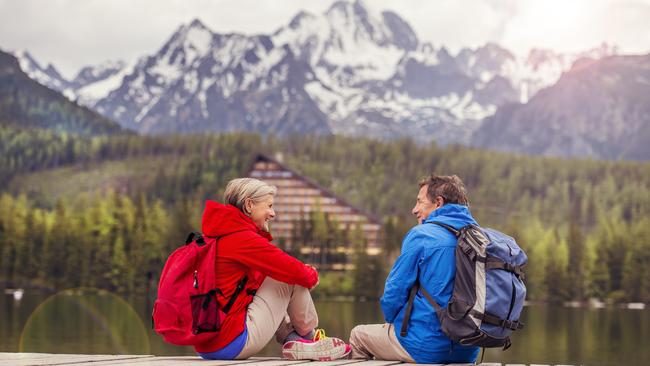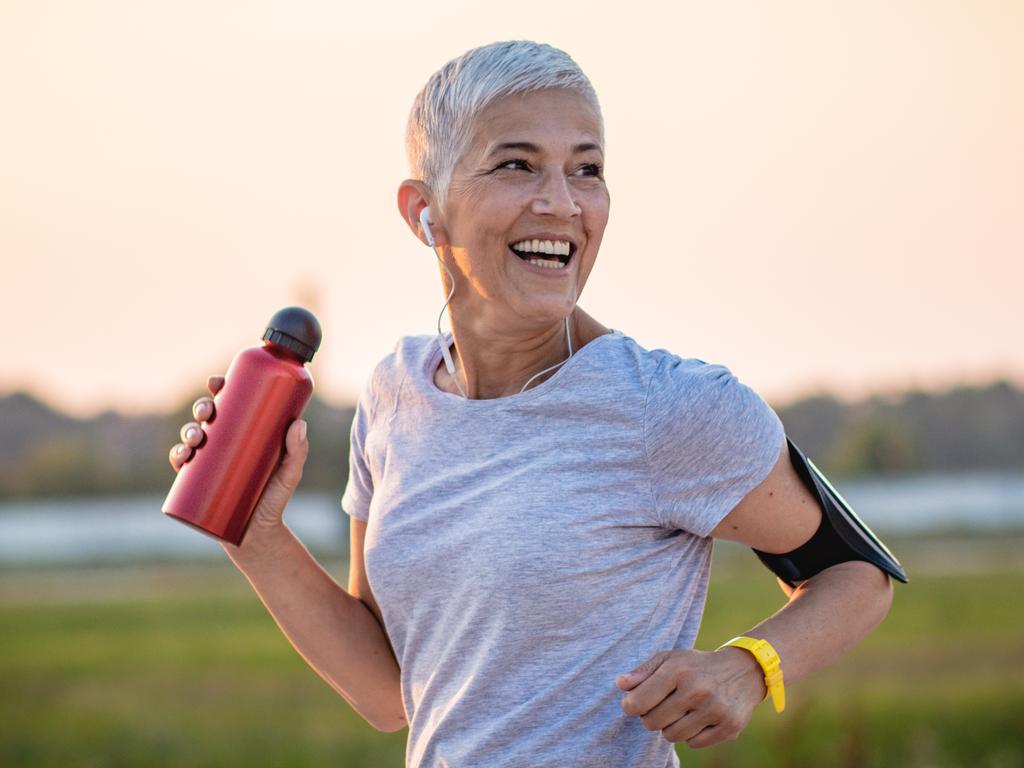During Covid-19, there are advantages to being older
Despite the health risks, age can make people more resilient

At the start of the COVID-19 pandemic, being over 65 felt like a curse.
Public-health doctors warned that anybody of that age faced a higher risk than younger people of suffering serious complications or dying if they contracted the virus. Then came the hashtag #boomerremover and angry tweets from some millennials blaming baby boomers for disrupting their lives and livelihoods.
As a boomer, I faced both the fear and the opprobrium. My daughter cautioned me to stay in my apartment with my husband and retreat almost entirely from the outside world.
We’ve pretty much done that. I’ve remained vigilant even as lockdowns have lifted. I’ve met a handful of friends outdoors — just one at a time, masked and at a safe distance.
I’m still relying on deliveries of groceries, and I haven’t returned to my gym, eaten at a restaurant indoors or taken public transportation as most middle-aged and young people I know are doing.
Yet after more than seven months of constraints, I’ve realised there also are advantages to being older during this time of COVID.
Because I’m retired from full-time employment, I haven’t worried about how I’d cope if I was laid off, or protect myself from contagion if I worked in a crowded factory or grocery store.
I haven’t felt stressed and exhausted juggling Zoom work meetings from my bedroom while supervising remote learning for kids who aren’t back to school full time.
And unlike college students, I haven’t had to choose between taking all my courses online or taking a gap year.
My husband and I have only ourselves to look after, and we know how fortunate we are to have sufficient savings to live comfortably, especially now when so many don’t have enough.
But it’s more than good fortune that keeps us less stressed than those of younger generations that we know. We’ve lived through difficult times before, including illnesses that required hospitalisations, the deaths of our parents and close friends, job losses, and tumultuous political and financial events.
We recall these times, and we tell ourselves we’ll get through the pandemic, too.
“People have better emotional experiences and manage their emotions better as they get older, and that’s continuing now even in a time of prolonged stress,” says Laura Carstensen, a psychology professor at Stanford University and founding director of Stanford Centre on Longevity.
“Study after study shows that as we age and our future time horizons grow shorter, we savour the good times in life and have more perspective about the bad times.”
In a study of 945 men and women ages 18 to 76 conducted in April at the initial height of the pandemic in the US, Dr Carstensen and researchers in her lab found that despite “grave risks to physical health, uncertainties about contagion and restricted social contacts”, older adults had less frequent and less intense periods of anxiety, anger, stress, boredom and other negative emotions than younger people.
This doesn’t mean that older people deny their difficult emotions. In fact, they are more likely than younger people to experience mixed feelings, such as sadness and happiness at the same time, and to be more accepting of sadness, which may be helping them weather the pandemic, says Dr. Carstensen.
I’ve certainly felt frightened about the possibility of having to be intubated on a ventilator because of COVID-19, especially this northern spring when I awoke every day to the sound of ambulance sirens. I felt sad when I couldn’t visit with my daughter, sisters and other relatives, and when friends in my New York neighbourhood vacated their apartments for second homes in less crowded rural areas.
Yet overall, I’ve been more content and calmer than I would have predicted.
Instead of dwelling on what I can’t do, I focus on what I can enjoy. I relish the long, daily walks I take in a park that I’ve lived half a block away from for 15 years, yet never before explored so much.
My walks spurred me to spend several weeks this nothern summer and autumn in western Massachusetts, where my husband and I hiked trails and marvelled at the foliage changing colours with the seasons.
I not only cook dinner every night, but cooking has become more fun as I constantly try new recipes. I’ve finally mastered flourless chocolate cake, roasted vegetables and a dozen new fish and chicken dishes. I’ve also overcome my tech-phobic tendencies and learned to use Zoom, Crowdcast, Anchor and other apps so I can join webinars, continue to mentor a high-school student and create podcasts.
Before the pandemic, my husband and I were busy with work and volunteer activities that kept us apart several hours each day. We also spent a lot of time as a couple socialising with others. Now it’s just the two of us all the time — in a 1000-square-foot apartment. Have we gotten on each other’s nerves and argued? Of course. We’ve had to negotiate and renegotiate separate space to work and exercise.
But with fewer distractions, we’ve also talked more about how we want to spend our time together after the pandemic. We’ve gotten closer and more patient with one another as we’ve observed each other’s daily routines and moods.
I’ve spoken with others my age who, like me, welcome the chance to slow down, cherish what we have and reconnect with the most important people in our lives. And we’re more accustomed to being less on the go than millennials or Gen Xers.
“I like eating dinner out at restaurants and going to the theatre, but not constantly, so being home most of the time is comfortable — and not very different than what I’m used to,” says Joan Goldsmith, a psychoanalyst in New York who is now working virtually with patients.
Dr Carstensen says there is another reason seniors have been resilient during the pandemic. As people age, they typically concentrate their attention and memory on positive information, her research has found. If they are shown images of both smiling and frowning faces, they focus more on the smiling faces, for instance.
“As people recognise they won’t live forever, they are more attuned to what’s good in life in the present,” she says.
I’m not ready to concede that I notice happy faces more than sad ones, or that I focus on smiles more than frowns. But one thing is for sure: Instead of seeing my age as a liability, I’ve come to appreciate it as an asset. I couldn’t ask for a better gift at the moment.
The Wall Street Journal







To join the conversation, please log in. Don't have an account? Register
Join the conversation, you are commenting as Logout